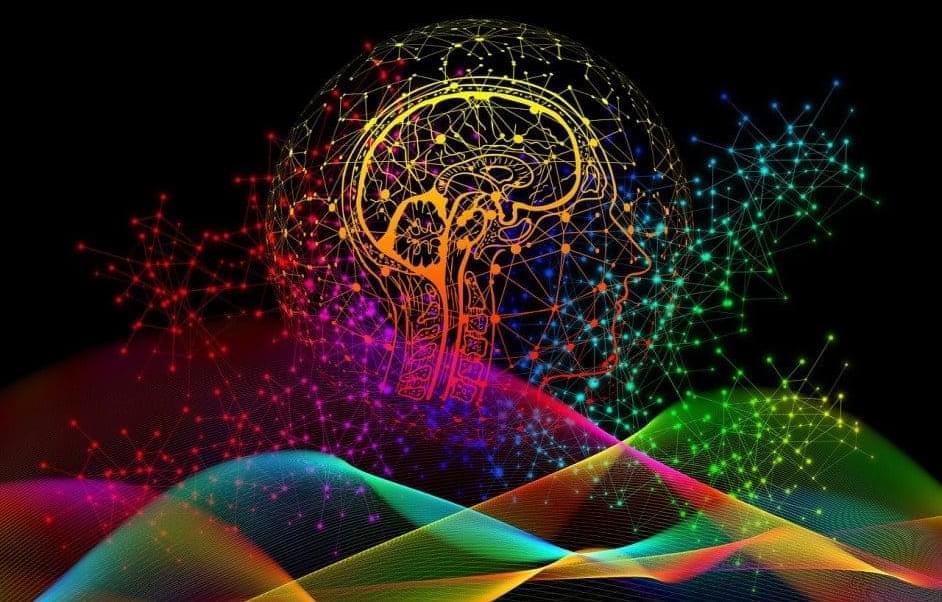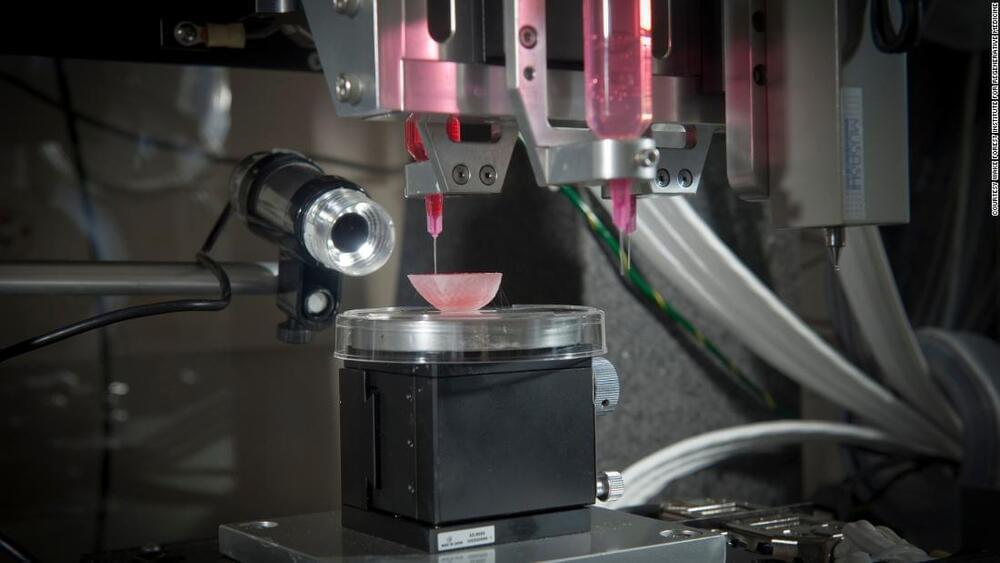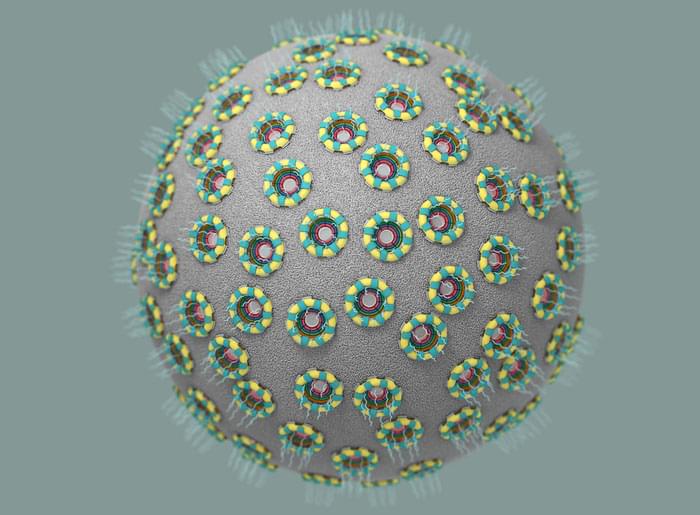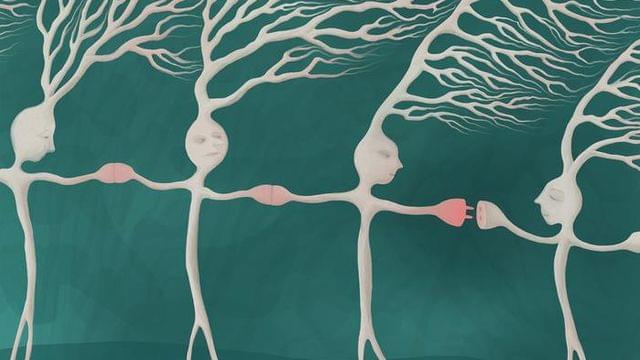😳!
Differing values of the Hubble constant might be reconciled via the dark sector.


A team of researchers at the Graduate School of Informatics, Nagoya University, have brought us one step closer to the development of a neural network with metamemory through a computer-based evolution experiment. This type of neural network could help experts understand the evolution of metamemory, which could help develop artificial intelligence (AI) with a human-like mind.
The research was published in the scientific journal Scientific Reports.
What is Metamemory?
Join my community at http://johncoogan.com (enter your email)
All images were generated by OpenAI’s DALL-E 2: https://openai.com/dall-e-2/
KEY SOURCES:
https://sitn.hms.harvard.edu/flash/2017/history-artificial-intelligence/
https://www.g2.com/articles/history-of-artificial-intelligence.
https://en.wikipedia.org/wiki/Timeline_of_artificial_intelligence.
https://courses.cs.washington.edu/courses/csep590/06au/projects/history-ai.pdf.
ABOUT JOHN COOGAN:
I am the co-founder of http://soylent.com and http://lucy.co, both of which were funded by Y Combinator (Summer 2012 and Winter 2018).
I’ve been an entrepreneur for the last decade across multiple companies. I’ve done a lot of work in Silicon Valley, so that’s mostly what I talk about. I’ve raised over 10 rounds of venture capital totaling over $100m in funding.
I work mostly in tech-enabled consumer packaged goods, meaning I use software to make the best products possible and then deliver them to the widest possible audience. I’m a big fan of machine learning, python programming, and motion graphics.


To begin the process of bioprinting an organ, doctors typically start with a patient’s own cells. They take a small needle biopsy of an organ or do a minimally invasive surgical procedure that removes a small piece of tissue, “less than half the size of a postage stamp,” Atala said. “By taking this small piece of tissue, we are able to tease cells apart (and) we grow and expand the cells outside the body.”
This growth happens inside a sterile incubator or bioreactor, a pressurized stainless steel vessel that helps the cells stay fed with nutrients – called “media” – the doctors feed them every 24 hours, since cells have their own metabolism, Lewis said. Each cell type has a different media, and the incubator or bioreactor acts as an oven-like device mimicking the internal temperature and oxygenation of the human body, Atala said.
“Then we mix it with this gel, which is like a glue,” Atala said. “Every organ in your body has the cells and the glue that holds it together. Basically, that’s also called ‘extracellular matrix.’”.
Canadian quantum computer company, Xanadu, has used its photonic quantum computer chip, Borealis, to solve a problem in 36 microseconds versus classical supercomputers taking 9,000 years. This is 7,884 trillion times faster. This runtime advantage is more than 50 million times larger than that of earlier photonic demonstrations.
An earlier quantum photonic computer used a static chip. The Borealis optical elements can all be readily programmed.
Borealis is accessible to anyone with an internet connection over Xanadu Cloud, and will also be available via Amazon Braket, the fully managed quantum computing service from AWS.

Whatever you are doing, whether it is driving a car, going for a jog, or even at your laziest, eating chips and watching TV on the couch, there is an entire suite of molecular machinery inside each of your cells hard at work. That machinery, far too small to see with the naked eye or even with many microscopes, creates energy for the cell, manufactures its proteins, makes copies of its DNA, and much more.
Among those pieces of machinery, and one of the most complex, is something known as the nuclear pore complex (NPC). The NPC, which is made of more than 1,000 individual proteins, is an incredibly discriminating gatekeeper for the cell’s nucleus, the membrane-bound region inside a cell that holds that cell’s genetic material. Anything going in or out of the nucleus has to pass through the NPC on its way.
Nuclear pores stud the surface of the cell’s nucleus, controlling what flows in and out of it. (Image: Valerie Altounian)

The will help you find new opportunities to use and further develop your machine learning skills.
Machine learning has proven to be a tool that performs well in a variety of application fields. From educational and training companies to security systems like facial recognition and online transaction prevention, it is used to improve the quality and accuracy of existing techniques.
Choosing the best tools for machine learning and navigating the space of tools for machine learning isn’t as simple as Google searching “machine learning tools”.
There are many factors to consider when choosing a tool for your needs: types of data you’re working with, type of analysis you need to perform, integration with other software packages you’re using, and more.

Defense Advanced Research Projects Agency (DARPA) announced on Friday that the agency is seeking proposals for its Assured Neuro Symbolic Learning and Reasoning (ANSR) program to address the trustworthiness of artificial intelligence and machine learning capabilities. Motivating new thinking and ap.

They are part of the brain of almost every animal species, yet they remain usually invisible even under the electron microscope. “Electrical synapses are like the dark matter of the brain,” says Alexander Borst, director at the MPI for Biological Intelligence, in foundation (i.f). Now a team from his department has taken a closer look at this rarely explored brain component: In the brain of the fruit fly Drosophila, they were able to show that electrical synapses occur in almost all brain areas and can influence the function and stability of individual nerve cells.
Neurons communicate via synapses, small contact points at which chemical messengers transmit a stimulus from one cell to the next. We may remember this from biology class. However, that is not the whole story. In addition to the commonly known chemical synapses, there is a second, little-known type of synapse: the electrical synapse. “Electrical synapses are much rarer and are hard to detect with current methods. That’s why they have hardly been researched so far,” explains Georg Ammer, who has long been fascinated by these hidden cell connections. “In most animal brains, we therefore don’t know even basic things, such as where exactly electrical synapses occur or how they influence brain activity.”
An electrical synapse connects two neurons directly, allowing the electrical current that neurons use to communicate, to flow from one cell to the next without a detour. Except in echinoderms, this particular type of synapse occurs in the brain of every animal species studied so far. “Electrical synapses must therefore have important functions: we just do not know which ones!” says Georg Ammer.